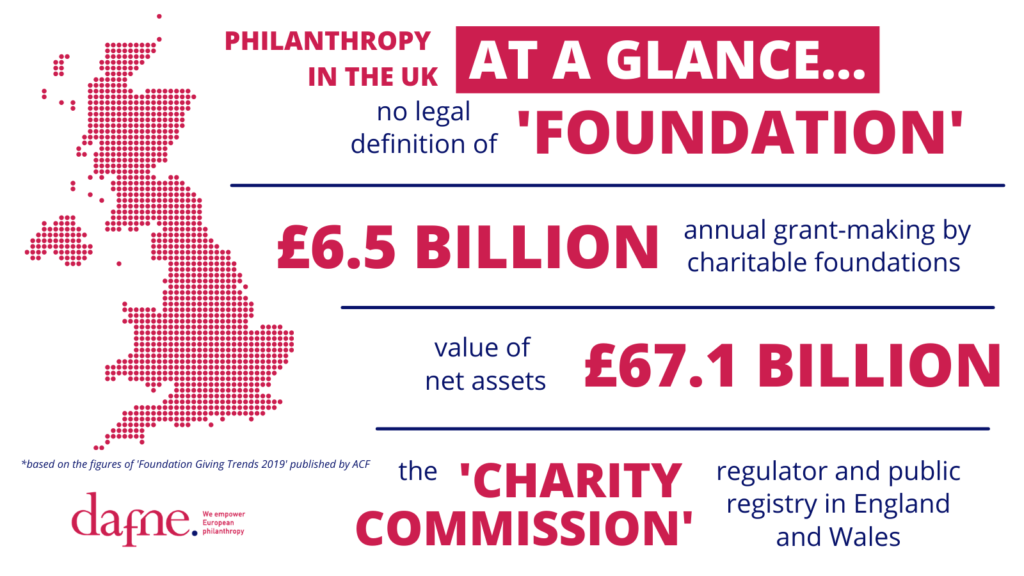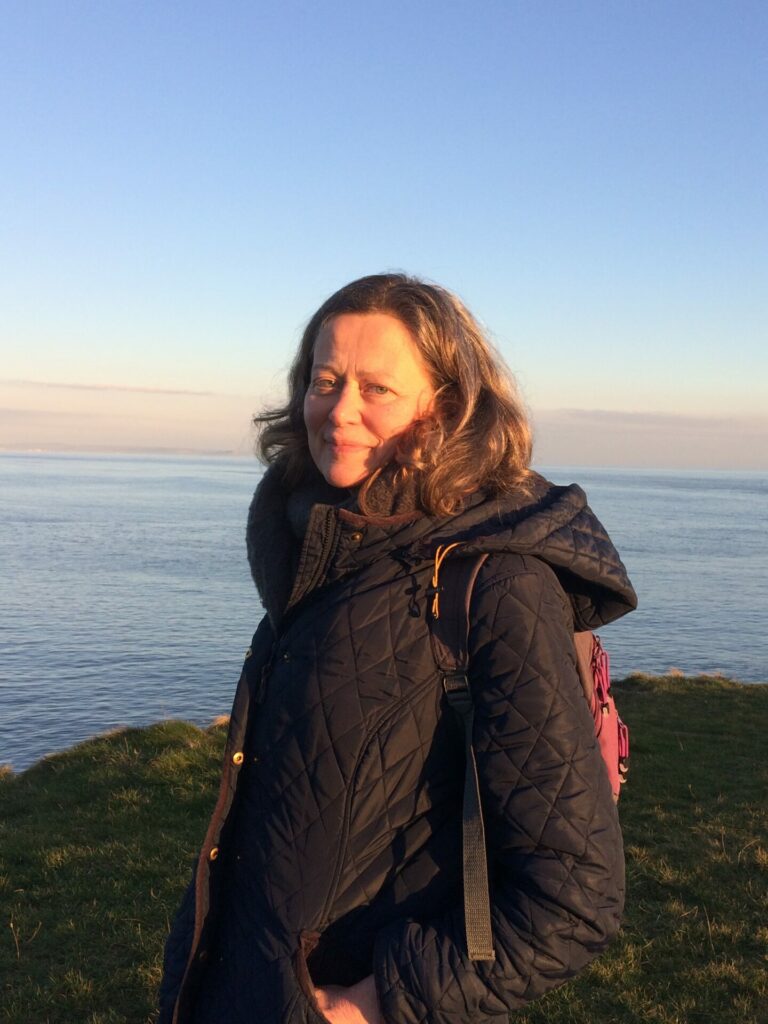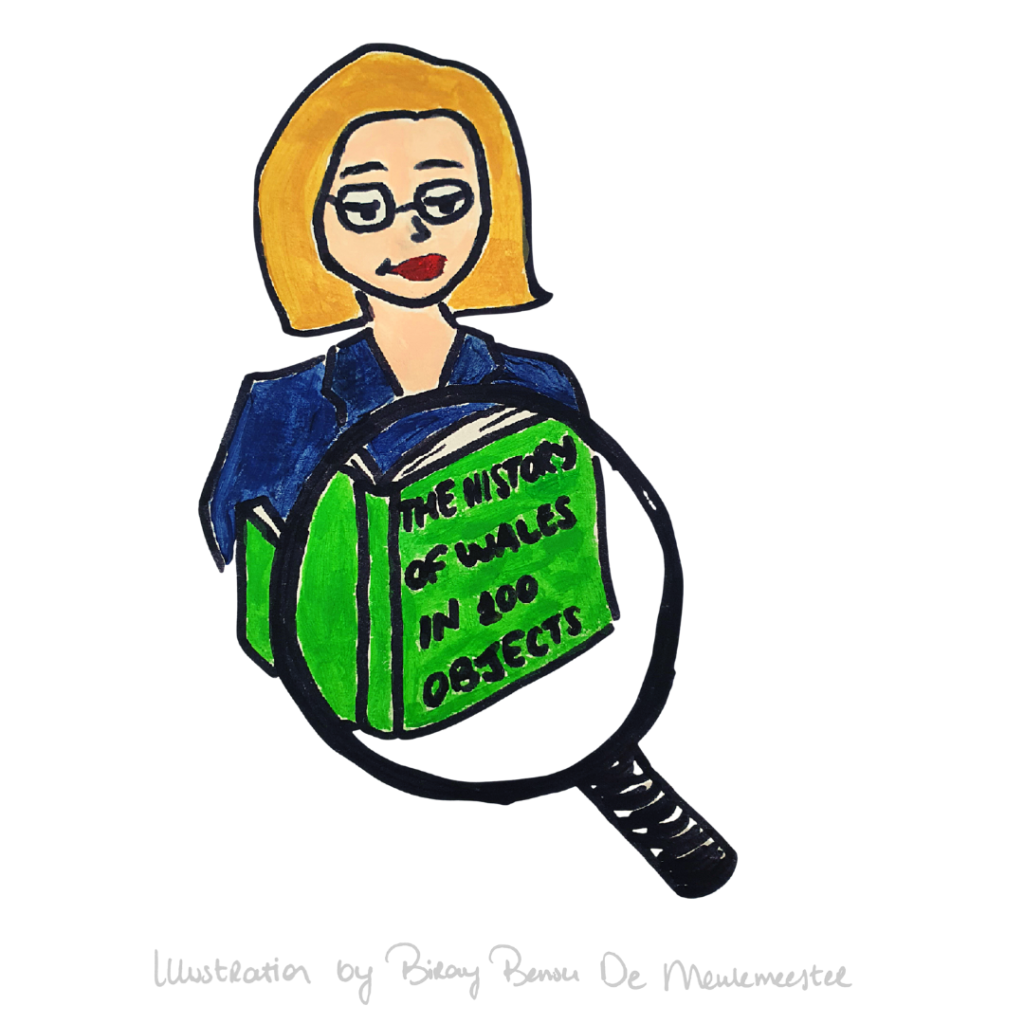Carol Mack, ACF: “No matter what you fund, the climate has an impact”
“It was clear to me that I didn’t want the epitaph on my gravestone to say ‘she generated shareholder value,’ I wanted to do something that I felt was more directed towards the common good. I decided to then move to the charitable sector,” said Carol Mack, Chief Executive of the UK’s Association of Charitable Foundations who was elected to the Dafne Board in January 2021. We discussed what makes the UK philanthropic sector special, Carol’s passion for climate, why she is learning Welsh and why she left the private sector to work for charity. We hope, through this interview, to shed a light on some of the people behind European philanthropy.
By Dr. Hanna Stähle and Karalyn Gardner
Beacon Collaborative says in its recent report that the UK could be a global centre of excellence for international philanthropy and social investing. What is your take on this?
The report makes a strong case for the UK’s place as a centre of excellence for international philanthropy. The UK has played an important role in leading the development of social investment, we have a vibrant foundation sector and an excellent regulatory system. Nevertheless, I think it’s important to remember that there are other places that have excellent practice too that we can learn from as well. Sometimes I believe the UK gets held up as an example because of its language. Because of the prevalence of English as an international language, what we do here often does not need to be translated for others to understand and this gives us a free-ride. I am aware, when looking at my Dafne peers, that they are doing really exciting work that doesn’t get picked up on as much because it needs to be translated for everyone to understand it. That said, London remains a global city with a reach into many international networks and with a strong ecosystem to support that. London would, I think, be well placed to mirror that for international philanthropy as much as for international finance and trading.
How would you explain the UK charity and philanthropy sector to colleagues in other parts of Europe?
“The concept of charity goes back a long way in the UK. Until the last century, people still referred back to legislation dating from 1601 to help decide whether something was charitable or not in England and Wales, which illustrates a long and unbroken tradition of voluntary activity.“
The regulatory environment in which this happens might be of interest to those outside the UK. It’s important to remember that there are three different jurisdictions within the UK – in Scotland, in Northern Ireland and lastly in England and Wales. The concept of charity goes back a long way in the UK. Until the last century, people still referred back to legislation dating from 1601 to help decide whether something was charitable or not in England and Wales, which illustrates a long and unbroken tradition of voluntary activity. The charity sector’s evolution reflects the UK’s common law process, through which law evolves based on precedent. This makes it sound unregulated and organic, but charity is well regulated in the UK. There is a specific government department set up to regulate charity, and a public register of charities that is searchable online. The government requires charities to give a lot of information about their activities which is very publicly available. It is a very transparent system. This public register is a great source of knowledge for foundations that want to give a grant to a charity – you can see who the trustees are, whether they have been submitting their accounts, what their assets and income are.
“In the UK, a ‘foundation’ is not a strictly defined legal form. You might wonder – how then does ACF bring together charitable foundations, when there isn’t such a thing as a foundation?”
In the UK, a ‘foundation’ is not a strictly defined legal form. You might wonder – how then does ACF bring together charitable foundations, when there isn’t such a thing as a foundation? We use the term in the UK to mean a charity that has capital which it uses to carry out its mission. Very often it does this by providing support to others. The vast majority of ACF members give grants, or make social investments, or offer other forms of support. Some offer services as well, particularly some of the very old foundations might run a school or some housing, alongside their grant-making. Across Europe, we have at times quite different definitions of ‘foundations’.

You have been working at the ACF for 17 years now – what has changed within the sector over this time?
The sector is part of society so change within the sector also reflects societal change. I see two trends that particularly impact the foundation sector. Firstly, there has been a general decline in trust in institutions including the government, the media and charities. There is, secondly, an ever-growing trend towards greater transparency and availability of information. In the past, foundations were generally met with gratitude because they were giving money and this was regarded as a good thing. Increasingly, a foundation’s grant-making is met with scrutiny. Just because you are trying to do good, does not mean that you will be met with universal approval.
“Increasingly, a foundation’s grant-making is met with scrutiny. Just because you are trying to do good, does not mean that you will be met with universal approval.”
How does this change link to the Stronger Foundations initiative?
ACF’s mission is to support foundations to be ambitious and effective in the way that they use their resources for social good. The Stronger Foundations initiative set out to answer the question: what does ambitious and effective foundation practice look like? To break it down a bit, we divided foundation practice into six areas that, we thought, posed some of the most challenging questions for foundations.
Before we started on this initiative, we did a feasibility study, looking at codes of practice that have been set up in all sorts of different sectors. This study said that it doesn’t matter so much what the code of practice says – we could probably have sat down and written some of the pillars without the whole Stronger Foundations process – what matters is the process of buy-in and the feeling of ownership. We had 100 foundation representatives involved in the process and they are the ones who have undertaken the journey to discover what excellent and ambitious looks like in some detail. It was a real privilege for us to follow the journey alongside our members and benefit from their thinking.
What is the role of philanthropy infrastructure, particularly European philanthropy infrastructure, in your eyes?
Geoff Mulgan gave a great analogy at the PEXforum 2021 describing infrastructure in terms of visionary plumbing – it is about connecting and providing a framework within which others can make connections and operate. For me, a key role of philanthropy infrastructure is to be supportive and to provide a platform on which things can happen.
The role of European philanthropy infrastructure is to make those connections cross-border and help those engaged on the national scale to see the commonalities across Europe, to understand how they fit into the global environment and to enable them to be more than the sum of their parts so that together they have a strong voice. I have learned an immense amount from my peers in the Dafne network. I am always surprised by the commonality of the issues that we face but they do not always manifest themselves in the different countries in the same way. It is like looking at your situation through a prism, you see a different light on it.

What can you tell us about your career journey?
I would describe my career path as ‘meandering’ – I didn’t set out to do what I am doing today, I came to this gradually. The common thread is that I always wanted to do something useful and I defined this quite broadly over the course of my career. As a student I had various jobs I wasn’t very good at. Working at a fish and chip shop was my favourite. I served behind the counter and I was allowed to take chips home at the end of the night, if there were any leftover. It was great for my mental arithmetic as we did not have a calculator. When I graduated, I didn’t have a very defined idea of what I wanted to do but I knew I didn’t want to make chocolate biscuits because I didn’t perceive that as sufficiently useful, I can remember thinking that quite distinctly.
“It was clear to me that I didn’t want the epitaph on my gravestone to say “she generated shareholder value,” I wanted to do something that I felt was more directed towards the common good. I decided to then move to the charitable sector.”
At first, I went to work for an oil company so, arguably, I would have made a more positive contribution to society by making chocolate biscuits. At the time, back in the 80s, to me, oil was needed and important, and therefore, this was a valuable contribution. I did this for seven years during which time the negative impact of global warming on the environment and the contribution that greenhouse gases made toward that became clearer. At that time companies were very focused on generating value for their shareholders, and I am not knocking that because without a well-functioning economy, philanthropy cannot operate, the source of income of many foundations lies in the economy. Nevertheless, it was clear to me that I didn’t want the epitaph on my gravestone to say “she generated shareholder value,” I wanted to do something that I felt was more directed towards the common good. I decided to then move to the charitable sector. I started working as an administrator for an amazing organisation that mediated neighbour disputes in a part of London. I then moved to the charity commission, the regulator of the sector, so I was a civil servant. I moved there because I wanted to support charities and worked there for seven years. Then I moved to ACF, joining as the membership services manager, then became deputy chief executive, before being appointed chief executive in 2016.
What are you currently reading?
At the moment, I am reading a book called “The History of Wales in 100 objects” based on a radio series called the History of the World in 100 objects by the former director of the British Museum. I like books about history and places, and I am interested in language. I live in Wales so that my children can go to a Welsh-language school and I am learning Welsh, really so that they can’t talk about me behind my back. Every year, we go up to the North, to a place where Welsh is commonly spoken and it is fantastic for the children to really hear it as a living language all around them. Where I live, in South Wales, it is spoken but not as commonly.
“I live in Wales so that my children can go to a Welsh-language school and I am learning Welsh, really so that they can’t talk about me behind my back. Every year, we go up to the North, to a place where Welsh is commonly spoken and it is fantastic for the children to really hear it as a living language all around them.”

You’ve touched on the climate topic a little bit. What drives your commitment to the topic? How have you translated this into your work?
It is the defining issue of our time. If you think about the upheaval in our societies as a result of COVID-19, this is a stark warning of how quickly crises can escalate if they are not addressed in good time. For me, the climate crisis is a massive challenge which we have tried to escape for too long – we have known about this for many decades and we have still not really seen the necessary changes. What is positive, though, is that, for the first time ever, governments seem to be finally accepting that this is a challenge that they really do need to tackle.
It’s also worth thinking about the role of foundations. Many foundations have funded the work that has led to an understanding of the climate crisis but the number of foundations that focus on environmental philanthropy is very small. This is a reputational risk for our sector. It can be very difficult for operational charities, that have to make their income from one year to the next, to change direction and focus on the climate but foundations have no excuse, they have the resource which gives them the luxury of time to think about how they use these resources. In a foundational time frame, ten years is nothing and, increasingly, the evidence is such that no matter what you fund, the climate has an impact. I believe that if foundations do not act, then they will be judged harshly by history.
“In a foundational time frame, ten years is nothing and, increasingly, the evidence is such that no matter what you fund, the climate has an impact. I believe that if foundations do not act, then they will be judged harshly by history.”
What are your thoughts on the international philanthropy commitment to climate change, which represents a growing momentum in the sector perhaps kicked off by the UK Funder Commitment on Climate Change in 2019?
The Funder Commitment on Climate change closes the gap between individual concern and the mission of foundations. It enables foundations to join the dots and, whatever their mission, look at it through the climate lens and take action. It also encourages foundations to take a look at their assets and how they are investing those. The Funder Commitment, which we now host, was developed by a group of ACF members with a wide range of charitable purposes who were concerned about the climate crisis.
What advice would you give to young people, particularly those starting in the philanthropic and charitable sector?
I would say to absolutely keep your idealism, principles and ways of viewing the work and to not give up if they are not implemented immediately. It sometimes takes time for institutions to change, which can be frustrating, but it is a bit like a juggernaut – that is a very big lorry that is quite hard to stop once it gets going. In the time that I have been involved in philanthropy, I have seen changes happen that seemed imperceptible at the time. Looking back, I see that things have been completely transformed.
Eager to learn more about the philanthropic sector in the UK? Here is some recommended reading:
- The UK as a Centre of Excellence for International Philanthropists and Social Investors 2021, the Beacon Collaborative
- Legal Environment for Philanthropy in the UK 2020 , Philanthropy Advocacy
- UK Funder Commitment on Climate Change
- Foundation Giving Trends 2019, ACF
